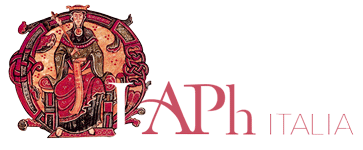
- Questo evento è passato.
Gender & Development: Feminist Values in Research issue
15 Dicembre 2018
In November 2019, the international journal Gender & Development will examine the theme of Feminist Values in Research. G&D is a unique journal: a forum for the sharing of analysis and experience between feminist activists involved in development research, policy, and practice. For more information, visit http://www.genderanddevelopment.org Research needs to be rooted in the experience, needs, and interests of the whole of humanity. But down the centuries, educated elites have shaped and dominated research and defined knowledge and learning.
This issue explores how feminist values and voices can be embodied and embedded in research in ways that promote social justice and support the realisation of sustainable human development. Feminists in development are exploring and learning from the stories, experiences and priorities of women and LGBTQI+ people, doing research that seeks to end the power imbalances between the researchers and the researched. They’re also doing feminist research with men. This issue explores how feminist values and voices can be embodied and embedded in research in ways that promote social justice and support the realisation of sustainable human development.
Feminist researchers are trialling new approaches and sharing knowledge in in policy and practice research, as well as academic institutions. Underpinned by feminist research methodologies, gender-transformative research commits researchers to challenge unequal power relations – between women and men, elites and non-elites, the researcher and the researched – in every way possible during all stages of the research process.
This involves reflecting on the motives and aims of the research; planning the research involving women as well as men as full and equal stakeholders; framing research questions that are useful to all participants; considering research ethics to ensure we uphold the principle of ‘do no harm’, ensuring research truly benefits everyone involved. After the research finishes, being gender-transformative requires us to analyse, write up, share and communicate findings in ways that support the empowerment of women and girls who have given time and trusted us. The goal is research which is fully owned by the women, as well as men, whose time and commitment have informed it, and useful to them.
If you are an activist researcher with feminist values and experience to share, please send a paragraph outlining your proposed idea for the issue.
Ideas for articles include:
• How do feminist research practices enable us to translate our values into meaningful ways of tackling and challenging gender inequality, poverty and exclusion across the global South? Case studies of researching and publishing to influence decisionmakers.
• To what extent do participatory and other feminist research practices enable participants’ voices to be heard more widely and more fully? What dilemmas does a commitment to equalizing power relations between researcher and participants create? Case studies showing the challenges in amplifying diverse voices
• Experiences of research in academic/educational institutions: how do young female researchers negotiate complex gender/age/teacher:student power relations in institutions that may be imbued with (un)conscious biases?
• What are the specific challenges facing feminist researchers aand/or researchers in policy and practice organisations? We would welcome accounts of programming planning, monitoring, evaluations and the pressure to prove results are positive and cost-effective versus more complex realities and unexpected outcomes.
• How can feminist researchers influence international development policies and practices using their research findings? We would welcome examples of research empowering participants from planning to sharing findings, inspiring activism and catalyzing change.
• How do we negotiate our multiple identities in the field, in the office, and in the classroom, conference room or community centre, as researchers, activists, practitioners and feminists, and what opportunities and challenges does this create?
Please send a paragraph outlining your proposed idea for an article for this issue, in an email (no attachments please) to csweetman@oxfam.org.uk as soon as possible and by 15 December 2018. Commissioned articles (of around 6,000 words plus references) will need to be completed for a deadline of 1 May 2019. Guidelines for contributors can be found at www.genderanddevelopment.org
